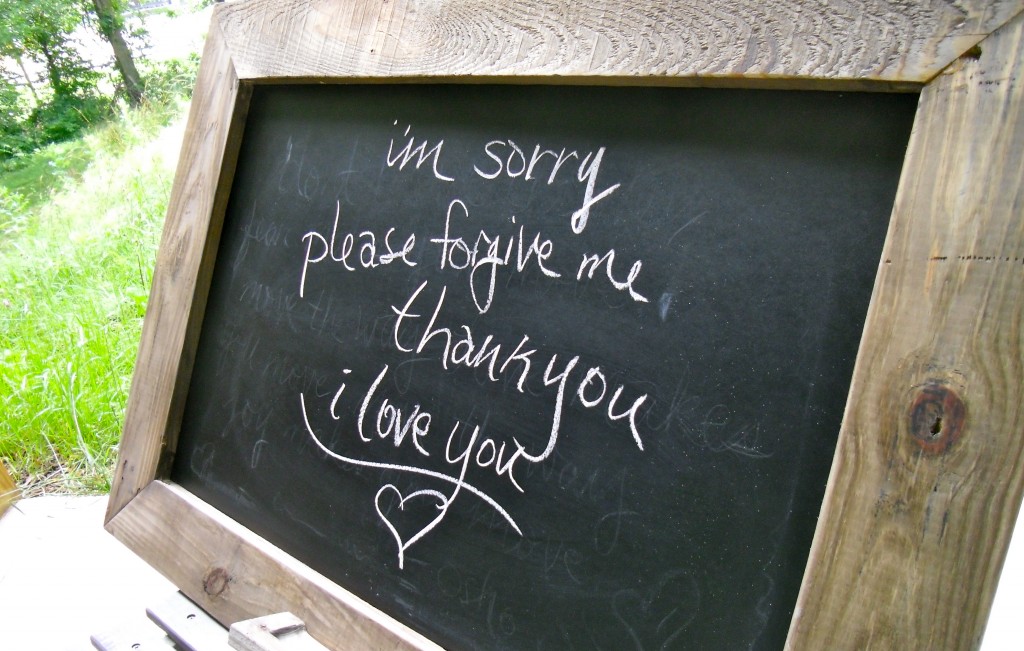“To forgive is to set a prisoner free and discover that the prisoner was you.” —Lewis B. Smedes
Forgiveness isn’t always easy. We each have experiences that have been painful to course through. Despite, at times, non-negotiable seeming burdens, I’ve repeatedly witnessed a complete turn around in the health and well-being of others after adequately dealing with grief, reworking a pattern of guilt or wholeheartedly forgiving another soul or situation who or that they have felt hurt, insulted or offended by in some way.
To move forward in any healing process, it is essential to let go of the past, appreciate it for the lessons that it gifted and forgive everyone involved— including our self.
I love and am always open to discovering new ways to both help myself and others further along the path of clarity and connection—I love digging until I’ve unveiled roots of conflict—and I love it when what I come across is simultaneously so simple and effective that it demands a good share.
Ho’oponopono is a perfect example.
I first crossed paths with an article describing Dr. Hew Len’s work with Ho’oponopono several years ago. Dr. Ihaleakala Hew Len is a Hawaiian psychiatrist. He tells a story about how he worked with and improved an entire ward of criminally insane patients without ever meeting with any of them face-to-face. Dr. Hew Len explains that he would study the charts of the inmates and then turn inward to work on aspects of his own being. As he worked through and improved himself, the patients improved alongside.
I’d put money down on the notion that a very large percent of our population would read or hear about this and immediately push it aside whilst muttering about how ridiculous of a tale it is.
I’ve invested a lot of time and energy into both studying the science in support of and allowing an innate understanding to surface around how interconnected our thoughts and physical realities are, so I was intrigued enough to read on and to file his story and experience away—and have been really delighted to watch the process that he used wield its own special brand of magic while being applied to many different situations and through many different souls.
Dr. Hew Len’s practice evolved from the ancient Hawaiian spiritual tradition of Ho’oponopono. Ho’oponopono is a practice of reconciliation and forgiveness. It is very simple, yet one of the most powerful, meditative paths to releasing the energetic aftermath from past events.
Hoʻoponopono (ho-o-pono-pono)
- I’m sorry
- Please forgive me
- Thank you
- I love you
(I like to add in “I forgive you” along with “Please forgive me.”)
Sit with these four phrases, and wish them to the person or event in your heart that you are having a hard time with. It doesn’t mean that you must suddenly enjoy or develop a friendship with this person. You will be releasing your own heart to expand—and, in doing so, to heal.
It doesn’t matter whether you say the above phrases out loud, it only matters that you express them with sincerity—directed both outward and inward in a way that deeply resonates with you and is meaningful.
Though each experience is unique, my personal experience with the practice of Ho’oponopono has been incredible. I’ve learned that quieting my mind, keeping the process simple and full of sincere purpose can quickly transform conflict into unwavering content. It has improved relationships, released repetitive memories and, in general, has been a reliable form of stress relief. By immersing myself in these resolute words and intentions when negative-feeling issues arise, it’s as if I’m able to mindfully break down barriers, see and appreciate other souls as extensions of myself and recognize and understand the value that whatever issue at hand is offering to my immediate, as well as collective, experience.
According to the teachings of Ho’oponopono (as well as most other systems and paradigms of health and healing,) we are each responsible for our physical experience. All that we see, hear, muse over, recognize and feel emanates from our own mind and presence. Our reactions and interpretations of the surrounding world is our creation, with one foot fastened to memories from the past.
This makes it reasonable to believe, or at lease to entertain, that working to shift certain patterns can have a very real and lasting effect on our physical lives. Feeling into each of these four phrases brings a cleansing and amending light to negative-feeling thoughts and experiences. They calm and center. They soften. Ultimately, they transform not only the inner-workings of our own minds and hearts—but of those connected to us through shared experience.
If you’re trying to restore balance; learn to forgive. Learn to see the painful experiences in your life as the incredible teachers that they are. Release resentment and/or guilt. Realize that we are all here for the purpose of learning.
We are all going through this human experience—together.
(elephant journal, june 2013)

~♥~